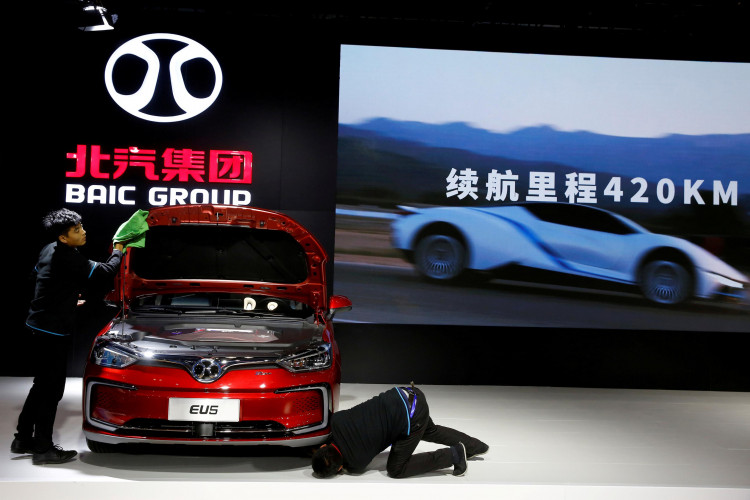Beijing Automotive Group Co. Is upbeat that it can unload as many cars this year as it did in 2019 as the company faces "brutal competition" and a continued downturn in China's car industry.
The country's fourth-biggest car manufacturer is setting its sights to sell up to 2.35 million vehicles this year, said General Manager Zhang Xiyong at a news conference in Jilin's northeastern province.
Zhang said company profits increased 4.3 percent in 2019 to 501 billion yuan ($72 billion) and the company, whose partners include Hyundai Motor Co. and Daimler AG, is hoping to jack up this figure to 520 billion yuan.
The auto market in China has been declining and competition is becoming "increasingly harsh," said Zhang. In his speech during the same briefing, BAIC Chairman Xu Heyi said the vehicle manufacturing landscape is seeing a fundamental transformation that will result in "injury to the bones."
In the world's largest car market, official predictions indicate more misery ahead. "It's a boxing match that some insiders in the auto business have not yet fully understood," Xu emphasized.
Last month, the China Association of Automobile Manufacturers announced that sales could drop by 2 percent to 25.3 million vehicles in 2020, a third consecutive year of declines. The market is struggling globally as trade wars and weak economic growth hurts demand.
Nevertheless, sales rose by double digits to 550,000 units in 2019 at BAIC's joint venture with Daimler, Zhang said. According to Xu, the company also announced the rollout of its Beijing-brand cars, aiming to sell 1 million units in the next 10 years.
Rival SAIC Motor Corp the largest vehicle manufacturer in China, projects revenues to bounce back after their first 14-year decline, said a person familiar with the company's outlook last week. SAIC's partners include General Motors Co. and Volkswagen AG.
Thanks to the popularity of the EU5 sport utility vehicle produced by its Beijing Electric Vehicle Co unit, BAIC is a leader in electric vehicles. Like the broader automotive market, China's electric vehicle market is slowing as the government is cutting back on subsidies.
However, that is not stopping ambitious expansion plans from domestic players and foreign gamblers, including Tesla Inc churning out sedans from a plant in the outskirts of Shanghai and launching their first locally-manufactured four-wheelers on Tuesday.
According to Xu, the industry tracks Tesla's cost of manufacturing and procurement as well as its technology venture "very closely." "Tesla is a very good benchmark for the automotive industry and it's going to help it move forward," he said.






